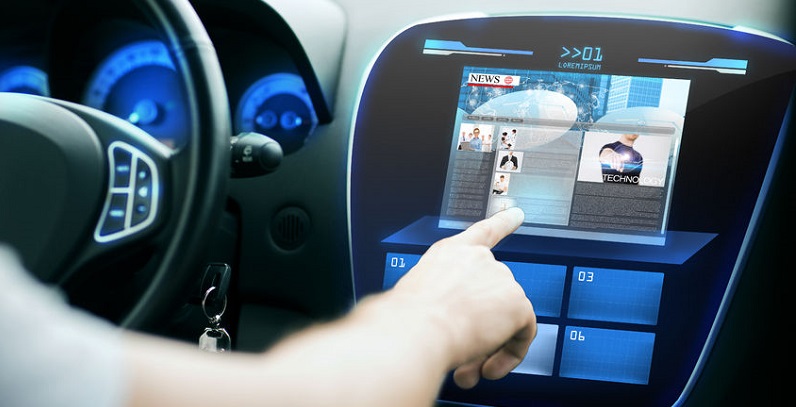In Colorado, the numbers are concerning. Safety officials say on average, 40 car accidents a day are caused by distracted drivers in the state. In 2017, nearly 70 people were killed due to distracted driving.
Drivers Are Taking Their Eyes off the Road to Watch Movies and Ask Questions of their Cars
New car owners, those who have purchased recent year models, may have been “wowed” by all the bells and whistles that come along with a newer vehicle. While the technology is meant to make driving an extraordinary experience, a recent study by the American Automobile Association (AAA) Foundation for Traffic Safety notes that the technology should come with a warning. All the bells and whistle are great but keeping your eyes on the road is imperative to keep yourself and those around you safe.
Infotainment Tech Causes Additional Driver Distraction
At one time, entertainment in a vehicle meant an AM radio receiver, and even then, you had to pay extra and ask for it. It wasn’t until 1933 that the first car even came equipped with a standard radio. Eventually, the dash console also had a cassette player and then a CD player. Today, entertainment technology has become infotainment technology, and automakers are trying to outdo one another to see how much infotainment they can put into a modern-day console.
Vehicles today not only have audio capabilities from standard radio to satellite radio but some vehicles today offer WiFi and other wireless connectivity so that you can stream music or videos; some vehicles even come with Apple and Android connectivity so that you can sync with various apps. Also, there are voice command items and touch screens, including GPS. While all these features make driving much more of an experience, it’s also, according to one national safety organization, making driving more dangerous. More specifically, all this technology is fast becoming a huge distraction.
Late last year, AAA released a report on new research surrounding infotainment and distracted driving. AAA, who partnered with the University of Utah, observed drivers behind the wheel of vehicles that provide additional visual and cognitive stimulation in the form of advanced entertainment technology and graded vehicles on how much of a demand driving these cars put on drivers. The research found that drivers who used voice-based or touch-based technology were visually and mentally distracted for tens of seconds at a time, meaning the person behind the wheel focused on everything but the road ahead of them.
A person driving while texting, on average, takes their eyes off the road for 5 seconds to text. If that person texting is going 55 mph, they will have gone the length of a football field before refocusing on the road. That in itself is frightening, and now it’s apparent that someone using a GPS screen or voice-controlled technology while driving can go as long as 40 seconds without focusing on the road. It’s a distraction that officials say is becoming deadly.
Thousands Died in Auto Accidents in 2015 Due to Distracted Driving
Whether for 5 seconds or 40, taking your eyes off the road has consequences. In 2015 alone, nearly 3500 people died in distracted driving accidents, and another 391,000 people were injured. In Colorado, the numbers are also concerning. Safety officials say on average, 40 crashes a day are caused by distracted drivers in the state. In 2017, nearly 70 people were killed in auto accidents in Colorado due to distracted driving. Using electronic devices while driving is the main culprit, but according to the AAA study, it’s not the only one.
The most recent study found that using a vehicle’s GPS system while driving was the most distracting thing you can do, yet 12 of the 30 vehicles tested in the study allowed a driver to program a GPS while the car was moving. According to our own Denver Post, the National Highway Traffic Safety Administration (NHTSA) did issue voluntary safety guidelines to automakers, like installing a lock on GPS programming while the car is moving, as a way to stop drivers from using the navigation system when they are supposed to have their eyes on the road. While some of the automakers did follow the guidelines, others did not. Texting is the second most distracting thing a driver can do, and yet three-quarters of the cars tested had no means of locking out that action as well.
As much as Colorado officials work to make the roads safer, common sense should come into play for all drivers once behind the wheel. You should know by now that the only thing you need to be doing if you are driving, is driving. Playing with the radio, inputting GPS data, or texting should be the last.

